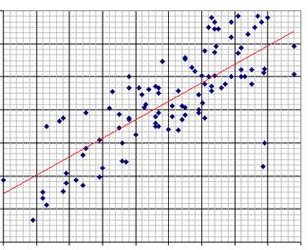Federal gasoline excise tax
The reason that the Federal Government creates independent commissions is because they are able, generally, to say things and make recommendations that politicians, fearing if they make hard choices that they will increase the likelihood of defeat in the next election, won't make.
The Defense Base Closure and Realignment Commission (BRAC) is a perfect example. So seemingly, is the National Surface Transportation Infrastructure Financing Commission, a 15-member panel created by Congress.
One of the problems with these kinds of commissions is that they tend to have membership drawn equally between Democrats and Republicans, and at some point, ideology colors the final recommendations and the ability to reach consensus. (As Steve Burghardt says in the sadly out-of-print Organizing for Community Action, consensus isn't all it's made out to be. Sometimes, you have to buck up and do the right thing.)
Last year they came out with a report, The Path Forward: Funding and Financing Our Surface Transportation System (downloadable from their website), focusing on the nation's transportation priorities in advance of the next Transportation appropriations and authorization bill next year. Note that somewhere I read recently that all of the increases in funding for transportation over the past few years went to Congressional earmarks for transportation. Obviously, many of these projects were and are worthy. Many are not.
I was disappointed that the failed to make recommendations about the creation of a true national railroad transportation vision and network.
Now, according to press reports, such as "Panel Urges 50% Gas Tax Increase" from USA Today, they are recommending up to a 40 cent increase, phased in over five years, to the federal gasoline excise tax.
When even conservative columnist Charles Krauthammer, in "At $4, Everybody Gets Rational," recommends an immediate significant increase in the gas tax, this is disappointing, and fails to leverage the ability of commissions such as this to make tough recommendations that can always be ameliorated in the give and take and push and pull of politics.
From "Panel Urges 50% Gas Tax Increase" in Time Magazine:
A study by the Transportation Research Board of the National Academies estimated that the annual gap between revenues and the investment needed to improve highway and transit systems was about $105 billion in 2007, and will increase to $134 billion in 2017 under current trends.
-----------
Two things.
1. It's appropo at the beginning of the new year to repeat a line I have:
When you ask for nothing, that's what you get. When you ask for the world, you don't get it, but you get a lot more than nothing.
2. Which is based on something I learned a couple decades ago while working at the Center for Science in the Public Interest, a consumer group with Nader lineage (which CSPI tried to disavow). I learned this through observation, it wasn't something that the organization taught to its staff people.
Basically, you need to treat an issue as a continuum of positions, with a variety of policy-proscription points. I prefer to think of it as a kind of scatter plot, with the most conservative position on the far left of the line, and the most progressive position on the far right of the line, and all sorts of positions, all over the map, in between.

My sense of what I call the issue continuum.
I learned that the best consumer groups stake out the hard core, toughest, most progressive position.
You do this because in the end, you get much more movement towards the ideal, than if you were willing to compromise early, often, and far more conservatively.
It means that you never win. Because there is always plenty that you end up giving up.
But the end result, at the time, is far better than if you caved earlier.
It's why I tend to stake out much harder core positions, and criticize easy compromise, and wimpiness.
Some people and organizations have to stake out the harder core position in order get a better result. But the world is better as a result. Even if you personally are always disappointed, and seeking more.
Labels: change-innovation-transformation, electoral politics and influence, energy, gasoline excise taxes, provision of government services, transportation planning



0 Comments:
Post a Comment
<< Home